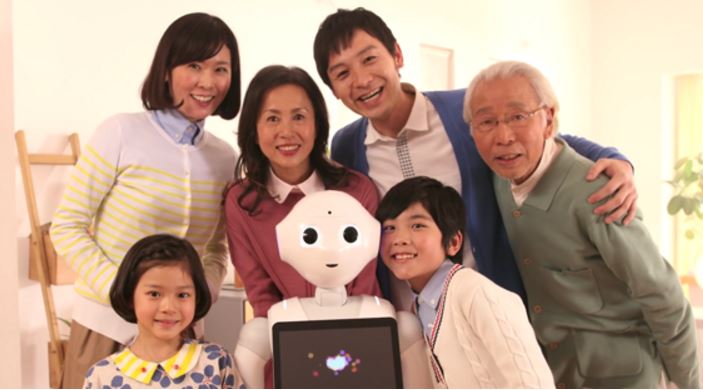Sex robots will likely become widespread within a decade, says artificial intelligence expert Noel Sharkey, who predicts a growing number of teenagers will lose their virginity to a cyborg, and warns that the need for human companionship may diminish as intelligent machines take over, while brothels and sex workers services could soon be dominated by machines.
Noel Sharkey, a former advisor to the United Nations, and known across the UK for his appearances on TV as an expert on robotics, told the Cheltenham Science Festival that as sex robots become more affordable and lifelike, they could become a staple in the bedroom.
The emeritus professor of artificial intelligence and robotics at the University of Sheffield worries about robot technology being hijacked for sinister and malign purposes – in the same way the internet has been for pornography – unless governments across the world take action now.
#RealFuture: The Man Making #SexRobots for the Masses https://t.co/WT3sGn4me3 #youtube #realdoll
— Fallopia Tuba (@franklanguage) February 16, 2016
Prof. Sharkey said that today there are more than a dozen companies in Japan and South Korea that are currently manufacturing and selling ‘childcare’ robots.
The cost of sex robots – which at the moment means a £7,000 price for the Rocky or Roxxxy True Companion – is declining rapidly as more manufacturers enter the market.
What is a robot?
Prof. Sharkey said:
“I do worry about people bonding and possibly having a relationship what is essentially a box full of computers. What if it’s your first time – your first sexual experience?”
“What are you going to think of the opposite sex then? What would they think a woman or a man actually is?”
 Will teenagers who lose their virginity in future with a humanoid robot have a distorted view of the opposite sex? How will males perceive females, and how will females perceive males?
Will teenagers who lose their virginity in future with a humanoid robot have a distorted view of the opposite sex? How will males perceive females, and how will females perceive males?
Companion robots
Companion robots, which entered the market recently, are becoming increasingly popular in Japan and other nations to provide stimulation for elderly individuals.
The Pepper robot, for example, is a human-shaped machine that its creators say is ‘kindly, endearing and surprising’. It was designed as a genuine day-to-day companion.
According to Pepper’s makers, SoftBank Robotics:
“Pepper’s number one quality is his ability to perceive emotions. Pepper is the first humanoid robot capable of recognising the principal human emotions and adapting his behaviour to the mood of his interlocutor.”
“To date, more than 140 SoftBank Mobile stores in Japan are using Pepper as a new way of welcoming, informing and amusing their customers. Pepper also recently became the first humanoid robot to be adopted in Japanese homes!”
According to Prof. Sharkey, parents in Japan and other parts of the world are using companion devices to keep their kids company.
 Pepper, the companion robot, is becoming a progressively more common feature in Japanese homes. (Image: ald.softbankrobotics.com)
Pepper, the companion robot, is becoming a progressively more common feature in Japanese homes. (Image: ald.softbankrobotics.com)
Young children are emotionally bonding with humanoid devices, a phenomenon which in several cases has led to ‘serious attachment disorders’.
In the Cheltenham Science Festival, Prof. Sharkey read out some comments by parents from an online forum – they had bought robots to keep their children occupied. In one comment, the writer said of their son:
“He has even started speaking in the robot’s fancy little voice and doesn’t ask to go out and play anymore or ask awkward questions.”
‘It is not emotion, it’s deceit’
Prof. Sharkey does not believe that the phenomenon of companion robots, including sexual intimacy with the devices, is emotion. He sees it more as deceit.
 As robots become better looking, their artificial intelligence gets more sophisticated, and their social and emotional traits become more human-like, will people form romantic bonds and stop looking for human companionship? (Image: deviantart.com)
As robots become better looking, their artificial intelligence gets more sophisticated, and their social and emotional traits become more human-like, will people form romantic bonds and stop looking for human companionship? (Image: deviantart.com)
Prof. Sharkey said:
“This isn’t emotion; it’s deception. You have to worry about people’s dignity. These robots are deceiving them and fooling them into thinking they love something that can’t love them back.”
Regarding the risk of creating spies that could be placed in people’s homes, Prof. Sharkey said:
“There are privacy issues because if you believe the thing understands you, you might be confiding in it and it might be recording you.”
“The new Barbie is connected to the internet. Parents just tick the box an sign the privacy agreement when they buy it without even looking at it. It says the Barbie is collect speech and uploading it onto the internet.”
“What I want to see is some more international joined-up thinking about what we actually want from robotics, rather than letting it take over like the internet took over.”
Prof. Sharkey, a founder member of an organisation called Responsible Robotics, insists he loves robots and has a strong desire to see them doing well. However, he warns that legislators, manufacturers, consumers and scientists need to think carefully what we actually want from them.
According to sexybots.com, there are currently 42 different companies that sell sex robots. Whether you want to call it technosexuality, robot fetishism, hi-tech perversion, or sex cyborgs, the market for both men and women is growing rapidly.
Video – Artificial Intelligence
AI or Artificial Intelligence refers to software that makes computers, robots, and other devices smart. Specifically, it makes them mimic how we think and behave. Sex robots will need to have AI installed in their systems.

